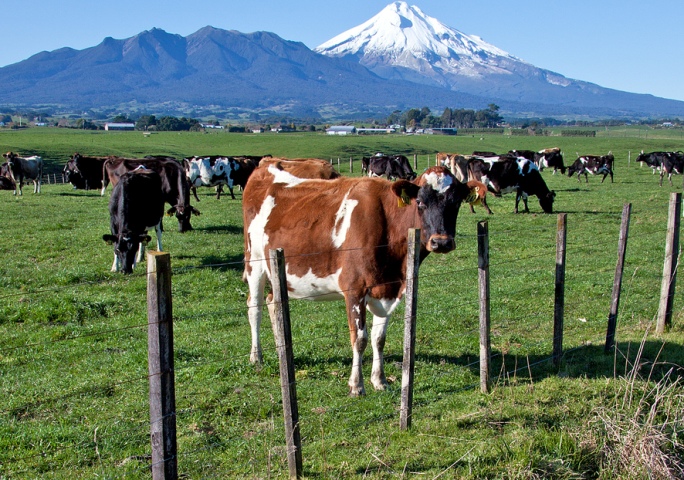Stronger Biosecurity Laws to Protect NZ’s Economy and Food Exports
“Food and fibre sector export revenue is forecast to reach $61.4 billion in 2026, making up more than 10 per cent of GDP – the primary sector really is the backbone of the economy,” Mr Hoggard said.

- Country:
- New Zealand
New Zealand's biosecurity system — a critical shield safeguarding the country's $61.4 billion food and fibre export sector — is set for its most significant legislative overhaul in decades. Biosecurity Minister Andrew Hoggard announced that the Government's proposed law changes will fortify defences against invasive pests and diseases, while maintaining efficiency and supporting the nation's economic growth.
Safeguarding New Zealand's Competitive Advantage
"Food and fibre sector export revenue is forecast to reach $61.4 billion in 2026, making up more than 10 per cent of GDP – the primary sector really is the backbone of the economy," Mr Hoggard said.
He emphasised that New Zealand's relative freedom from pests and diseases is a cornerstone of its international reputation for high-quality, safe, and sustainable food production. "Our competitive edge depends on maintaining strong biosecurity. Every incursion we prevent helps protect jobs, incomes, and communities across rural New Zealand."
Citing a New Zealand Institute of Economic Research (NZIER) report, Hoggard warned that a Foot and Mouth Disease outbreak could cost the country up to $14.3 billion annually, severely disrupting exports and local economies. "That's why we're acting now to make our system fit for purpose. We're fixing the framework so our food producers can keep doing what they do best," he said.
Public Consultation Leads to Targeted Reforms
The changes stem from an extensive public consultation process held between September and December 2024, during which farmers, exporters, importers, and environmental groups provided feedback. The Government says it has listened carefully to the industry and the public, striking a balance between security and practicality.
"We've delivered practical fixes that make New Zealand more secure without creating unnecessary bureaucracy. It's about being smart, not just strict," Hoggard explained.
Key Changes to the Biosecurity Framework
The proposed reforms introduce a comprehensive suite of measures aimed at modernising and streamlining New Zealand's biosecurity system. Among the most notable are:
-
Two-tiered border infringement system: Passengers who fail to declare high-risk goods like fresh fruit and meat will now face an $800 fine, while the existing $400 fine will remain for other risk goods. The goal is to create a stronger deterrent while ensuring fairness.
-
Stronger penalties for serious breaches: Individuals or entities obstructing searches or breaching controlled area notices could face fines up to $500,000, and the new legislation will grant enforcement officers powers of arrest for deliberate obstruction.
-
More flexible import standards: The system for developing import health standards will become more adaptable, allowing risk assessments tailored to specific scenarios. This change will enable higher trade volumes and faster access to new materials for innovators, all while maintaining strict safety standards.
-
Faster pest and disease management: The reform includes streamlined procedures for approving pest management plans and responding to biosecurity emergencies, ensuring authorities can act swiftly when threats emerge.
-
Fairer compensation system: Compensation for direct and consequential losses following a biosecurity incursion will remain, but only for losses incurred within 24 months of an event. This timeframe ensures fairness while safeguarding public funds. Minimum compensation entitlements may also be adjusted through regulation or under the Government Industry Agreement (GIA) framework.
Balancing Environmental and Economic Priorities
Minister Hoggard confirmed that one controversial proposal — to expand biofouling controls beyond New Zealand's territorial waters — would not proceed at this stage. "After consultation, I decided not to progress this change. We want to focus resources on areas where they deliver the greatest protection," he said.
Biofouling, the accumulation of marine organisms on ship hulls, remains a biosecurity risk, but officials believe current territorial measures and international cooperation provide adequate control for now.
Looking Ahead: Legislative Timetable and Implementation
The Government expects to introduce a draft bill incorporating the biosecurity law changes into Parliament in 2026, following final policy development and legal drafting. Once enacted, the reforms will modernise the Biosecurity Act — first passed in 1993 — aligning it with modern trade realities and emerging biosecurity threats such as climate-driven pest migration.
"The best way to manage an incursion is to stop it at the border," said Hoggard. "That's why we're investing in robust border systems and updating the laws that underpin them."
The changes are expected to support exporters, reduce delays in the approval of new agricultural and horticultural imports, and strengthen New Zealand's reputation for being a trusted and secure trading partner.
With biosecurity at the frontline of economic protection, the reforms are seen as a proactive step to safeguard the livelihoods of farmers, growers, and rural communities — ensuring that New Zealand's primary industries remain resilient and globally competitive in the years ahead.









